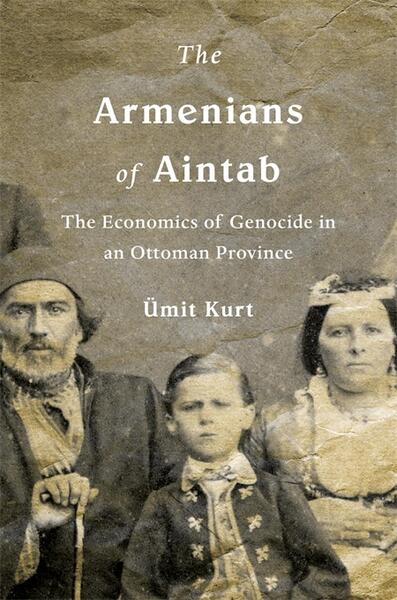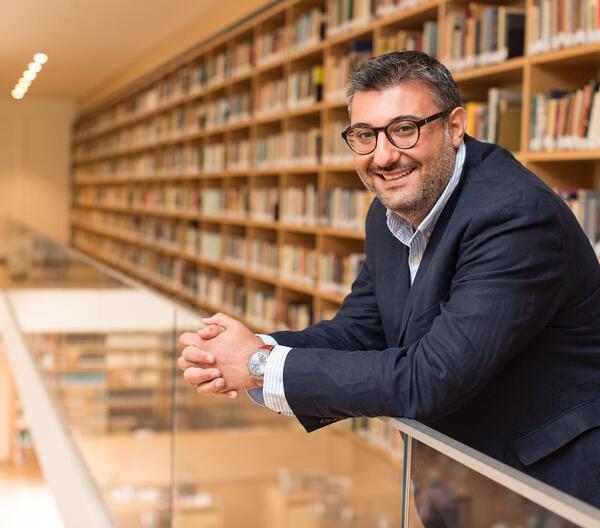Date:
Location:
The Center for Middle Eastern Studies presents a book talk
Dr. Ümit Kurt

Polonsky Fellow, Van Leer Jerusalem Institute; and lecturer, Hebrew University of Jerusalem
Register in advance: https://bit.ly/38QQUzY.
Please note that this event will begin at 12pm Eastern Daylight Time. If you live outside the US, please double-check the time difference.
“Kurt’s superb reconstruction of how Ottoman Armenians were plundered of their homes and businesses shows that everyone was in on it: from greedy locals to opportunistic regional officials to ruthless central leaders. Sealed in stone as well as blood, their criminal bargain forms the shaky foundations of Turkish society—as such bargains do in many countries.” —A. Dirk Moses, author of The Problems of Genocide
Ümit Kurt, born and raised in Gaziantep, Turkey, was astonished to learn that his hometown once had a large and active Armenian community. The Armenian presence in Aintab, the city’s name during the Ottoman period, had not only been destroyed—it had been replaced. To every appearance, Gaziantep was a typical Turkish city. Kurt digs into the details of the Armenian dispossession that produced the homogeneously Turkish city in which he grew up. In particular, he examines the population that gained from ethnic cleansing. Records of land confiscation and population transfer demonstrate just how much new wealth became available when the prosperous Armenians—who were active in manufacturing, agricultural production, and trade—were ejected. Although the official rationale for the removal of the Armenians was that the group posed a threat of rebellion, Kurt shows that the prospect of material gain was a key motivator of support for the Armenian genocide among the local Muslim gentry and the Turkish public. Those who benefited most—provincial elites, wealthy landowners, state officials, and merchants who accumulated Armenian capital—in turn financed the nationalist movement that brought the modern Turkish republic into being. The economic elite of Aintab was thus reconstituted along both ethnic and political lines. The Armenians of Aintab draws on primary sources from Armenian, Ottoman, Turkish, British, and French archives, as well as memoirs, personal papers, oral accounts, and newly discovered property-liquidation records. Together they provide an invaluable account of genocide at ground level.
Ümit Kurt is a historian of the late Ottoman Empire with a particular focus on the transformations of the imperial structures and their role in constituting the republican regime. He received his PhD from Clark University in 2016. Since then, he has held a number of postdoctoral positions in Center for Middle Eastern Studies at Harvard University and Armenian Studies Program at California State University, Fresno. Currently, He is a research Fellow at Polonsky Academy in the Van Leer Jerusalem Institute and teaches in the department of Islamic and Middle Eastern Studies at the Hebrew University of Jerusalem. He is the author of Antep 1915: Genocide and Perpetrators (2018), co-author of The Spirit of the Laws: The Plunder of Wealth in the Armenian Genocide (2015) and editor of Armenians and Kurds in Late Ottoman Empire (2020). Ümit Kurt is the winner of the 2021 Discovery Early Career Research Award given by Australian Research Council. He is also Vice Executive Secretary of International Network of Genocide Scholars (INoGS).
Contact: Liz Flanagan
